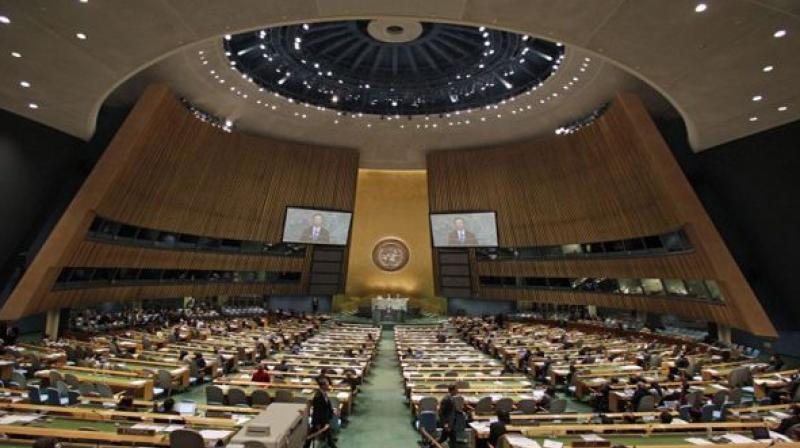Israel on defensive after landmark UN vote

Jerusalem: Israel scrambled on Saturday to contain the fallout from the UN Security Council vote to halt settlements in Palestinian territory after lashing out at US President Barack Obama over the "shameful" resolution.
The council passed the measure Friday after the United States abstained, enabling the adoption of the first UN resolution since 1979 to condemn Israel over its settlement policy.
By deciding not to veto the move, the US took a rare step that deeply angered Israel, which accused Obama of abandoning its closest Middle East ally in the waning days of his administration.
The text was passed with support from all remaining members of the 15-member council, with applause breaking out in the chamber.
The landmark vote came despite intense lobbying efforts by Israel and calls from US President-elect Donald Trump to block the text.
While the resolution contains no sanctions, Israeli officials are concerned it could widen the possibility of prosecution at the International Criminal Court.
They are also worried it could encourage some countries to impose sanctions against Israeli settlers and products produced in the settlements.
Prime Minister Benjamin Netanyahu rejected the resolution and criticised Obama in especially harsh language.
"Israel rejects this shameful anti-Israel resolution at the UN and will not abide by its terms," read a statement from his office.
"The Obama administration not only failed to protect Israel against this gang-up at the UN, it colluded with it behind the scenes," it said.
"Israel looks forward to working with President-elect Trump and with all our friends in Congress, Republicans and Democrats alike, to negate the harmful effects of this absurd resolution."
Michael Oren, the deputy minister for diplomacy in the premier's officer and a former Israeli envoy to Washington, said he saw the resolution as "a lot like anti-Semitism".
"Of all the conflicts in the world, just one party's being singled out, and that's the Jewish party," said Oren.
Trump reacted after the vote by promising change at the UN.
"As to the UN, things will be different after Jan. 20th," he tweeted referring to the date of his inauguration.
Threat to two-state solution
The US has traditionally served as Israel's diplomatic shield, protecting it from resolutions it opposes.
It is Israel's most important ally, providing it with more than $3 billion each year in defence aid.
But the Obama administration has grown increasingly frustrated with settlement building in the West Bank, which Israel has occupied for nearly 50 years.
There have been growing warnings that settlement expansion is fast eroding the possibility of a two-state solution to the Israeli-Palestinian conflict, the basis of years of negotiations.
Settlements are built on land the Palestinians view as part of their future state and seen as illegal under international law.
"We cannot stand in the way of this resolution as we seek to preserve a chance of attaining our longstanding objective of two states living side by side in peace and security," said Samantha Power, the US ambassador to the UN.
"The settlement problem has gotten so much worse that it is now putting at risk the very viability of that two-state solution."
Speculation has mounted that Obama would allow such a resolution to pass before he leaves office on January 20.
Trump has signalled he is likely to be far more favourable to Israel.
David Friedman, his nominee for ambassador to Israel, favours moving the US embassy from Tel Aviv to Jerusalem and has voiced support for settlement building.
Some 430,000 Israeli settlers currently live in the West Bank and a further 200,000 Israelis live in annexed east Jerusalem, which Palestinians see as the capital of their future state.
The resolution demands that "Israel immediately and completely cease all settlement activities in the occupied Palestinian territory, including East Jerusalem."
It states that Israeli settlements have "no legal validity" and are "dangerously imperilling the viability of the two-state solution."
Friday's vote was scheduled at the request of New Zealand, Malaysia, Senegal and Venezuela, who stepped in to push for action after Egypt put the draft resolution on hold.
After the resolution passed, Israel recalling its ambassadors to Senegal and New Zealand for consultations. It has no diplomatic relations with Venezuela or Malaysia.
A spokesman for Palestinian president Mahmud Abbas called the resolution a "big blow for Israeli policies".
The move was "an international and unanimous condemnation of settlements and strong support for the two-state solution," Nabil Abu Rudeina said.
Saeb Erekat, a former peace negotiator and the number two in the Palestine Liberation Organisation, spoke of a "historic day".

